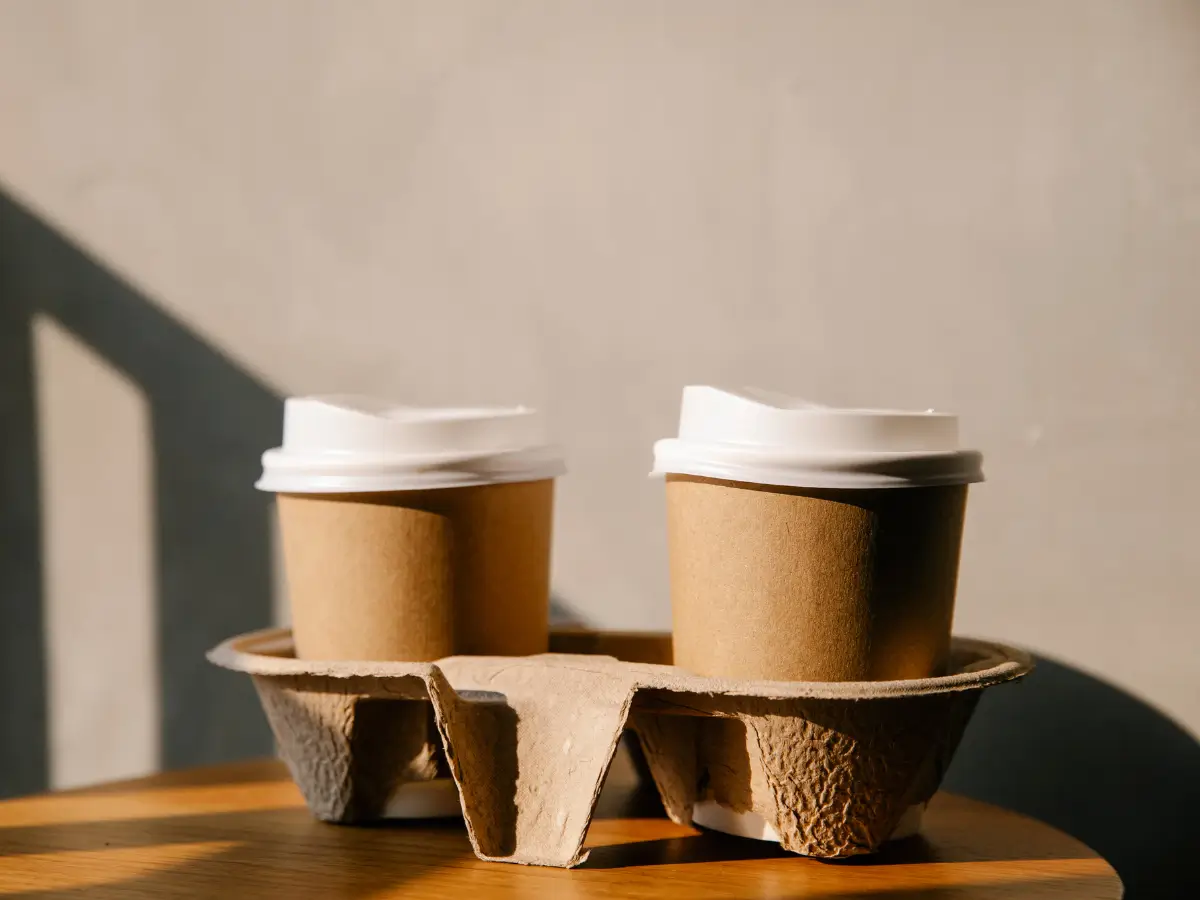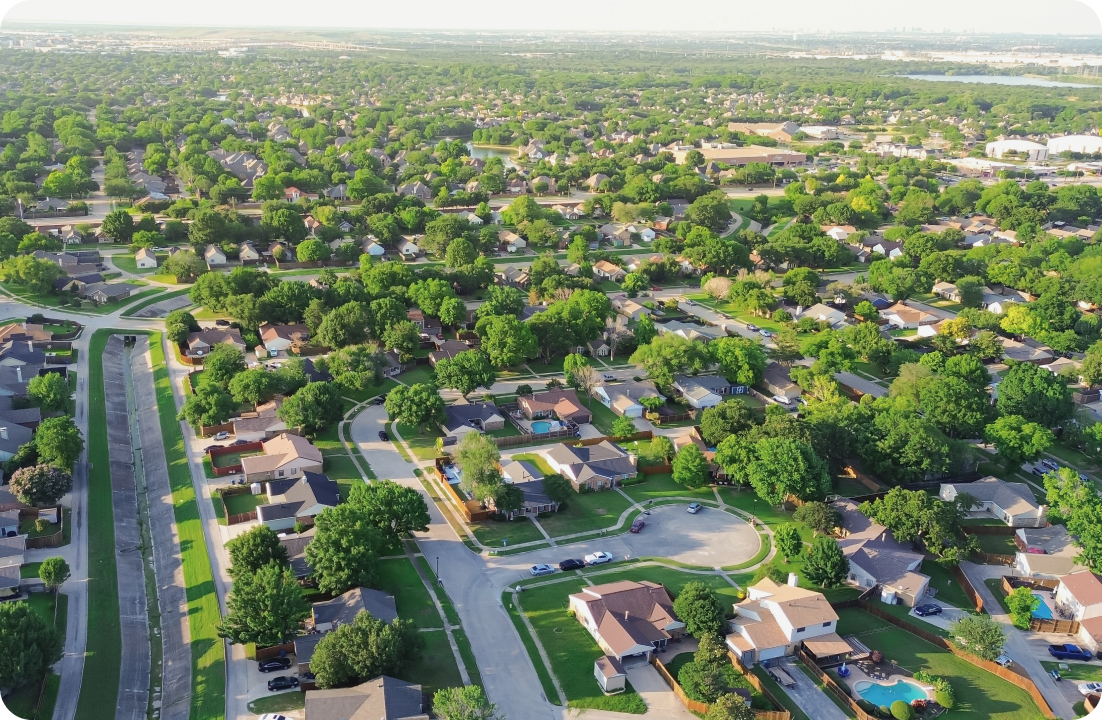Why Can't You Recycle Paper Coffee Cups?

These days, paper cups have a bad rap. That's because they're designed to be used only once before getting tossed out. Learn more about this commonly misunderstood material.
These days, paper cups have a bad rap. That's because they're designed to be used only once before getting tossed out.
We go through something like half a trillion disposable cups each year, or about seventy cups for every person on the planet. And to meet hygiene requirements, most of them are made out of virgin materials, i.e. real trees. Not recycled paper. Doesn't sound very sustainable, does it? Well, that's because it isn't.
Unlike most paper items, paper cups can't be recycled because they're actually coated in plastic as little as five percent per cup. That's why they're able to hold liquid without leaking all over the place. It's also why they don't get broken down into pulp and turned into recycled paper. While some communities do recycle materials like paper coffee cups, they're very rare. And only getting rarer. Unfortunately, there's just not much of a market for them, which means soda fountain cups, coffee cups, and those little sippy cups your dentist gives you all end up getting landfilled.
Not all paper cups are coated in plastic, though the vast majority are. Less frequently, some are actually lined in wax. Determining which is which can be difficult, though, which is why we advise treating them the same way. If, however, you're certain that your cup is coated in wax, you might be able to compost it, either at home or through your community's organics program, should they have one. You can check to confirm whether they're accepted using our app.
Though you probably can't recycle paper cups in your community, plastic lids and the corrugated sleeves your coffee comes in are probably fair game. You could also reduce the seventy cups or so you contribute to the global share by exploring alternatives that are more sustainable. There are plenty of places where you can buy reusable cups, including your local coffee shop.
In the meantime, some of the best and brightest are looking at tackling the single-use paper cup problem. Freiburg, a city in Germany, has an interesting solution: the Freiburg Cup. It's a hard-plastic reusable cup that's supplied to participating businesses by the city and it only costs customers a Ǩ1 deposit. Even Starbuck's is getting in on the action. Recently, they partnered up with Closed Loop to develop a recyclable, compostable cup.
Until that happens, remember: though they're paper, in most municipalities, paper cups go in the trash!
You might also like...
Why Can't You Recycle Paper Coffee Cups?

These days, paper cups have a bad rap. That's because they're designed to be used only once before getting tossed out. Learn more about this commonly misunderstood material.
These days, paper cups have a bad rap. That's because they're designed to be used only once before getting tossed out.
We go through something like half a trillion disposable cups each year, or about seventy cups for every person on the planet. And to meet hygiene requirements, most of them are made out of virgin materials, i.e. real trees. Not recycled paper. Doesn't sound very sustainable, does it? Well, that's because it isn't.
Unlike most paper items, paper cups can't be recycled because they're actually coated in plastic as little as five percent per cup. That's why they're able to hold liquid without leaking all over the place. It's also why they don't get broken down into pulp and turned into recycled paper. While some communities do recycle materials like paper coffee cups, they're very rare. And only getting rarer. Unfortunately, there's just not much of a market for them, which means soda fountain cups, coffee cups, and those little sippy cups your dentist gives you all end up getting landfilled.
Not all paper cups are coated in plastic, though the vast majority are. Less frequently, some are actually lined in wax. Determining which is which can be difficult, though, which is why we advise treating them the same way. If, however, you're certain that your cup is coated in wax, you might be able to compost it, either at home or through your community's organics program, should they have one. You can check to confirm whether they're accepted using our app.
Though you probably can't recycle paper cups in your community, plastic lids and the corrugated sleeves your coffee comes in are probably fair game. You could also reduce the seventy cups or so you contribute to the global share by exploring alternatives that are more sustainable. There are plenty of places where you can buy reusable cups, including your local coffee shop.
In the meantime, some of the best and brightest are looking at tackling the single-use paper cup problem. Freiburg, a city in Germany, has an interesting solution: the Freiburg Cup. It's a hard-plastic reusable cup that's supplied to participating businesses by the city and it only costs customers a Ǩ1 deposit. Even Starbuck's is getting in on the action. Recently, they partnered up with Closed Loop to develop a recyclable, compostable cup.
Until that happens, remember: though they're paper, in most municipalities, paper cups go in the trash!
You might also like...
Let's work together
We’re a proud partner to 1,700+ municipalities across North America and beyond. From local problems to larger initiatives, we’d love to have a conversation. Send us a note and we’ll be in touch as soon as possible.
